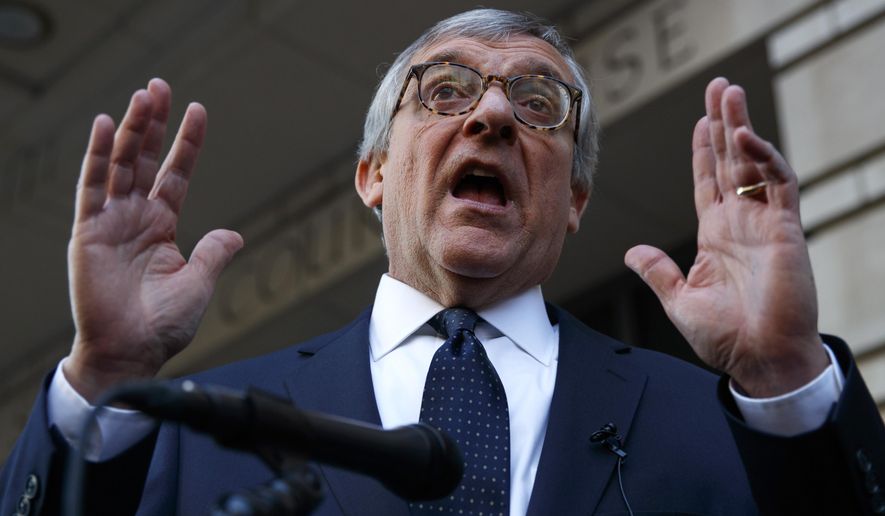WASHINGTON (AP) - A federal appeals court heard arguments Thursday about whether special counsel Robert Mueller’s appointment to lead the Russia investigation was constitutional.
The case was brought by Andrew Miller, a former aide to longtime Trump confidant Roger Stone, because he doesn’t want to testify before a grand jury as part of the investigation into whether the Trump campaign coordinated with Russia in 2016.
At issue is whether Deputy Attorney General Rod Rosenstein had the authority to appoint Mueller. The special counsel’s office says yes. But lawyers for Miller say no.
The three-judge panel of the U.S. Court of Appeals for the District of Columbia is now weighing that question but the latest shake up at the Justice Department hangs over the case.
On Wednesday, President Donald Trump appointed a Mueller critic, Matthew Whitaker, as acting Attorney General, putting him in place to oversee the Russia probe instead of Rosenstein. On Thursday, Judge Karen Henderson told attorneys for Mueller and for Miller to argue the case as if “the events of yesterday didn’t happen” but noted that the judges may want the parties to file additional briefs in response to Trump’s move.
The court fight comes as Mueller’s team is scrutinizing Stone’s connection to WikiLeaks. American intelligence agencies have concluded that Russian agents were the source of damaging information on Hillary Clinton that WikiLeaks released during the 2016 campaign. Mueller’s team has been probing whether Stone had any advance knowledge of WikiLeaks plans, a contention he has denied.
Four separate federal judges have upheld Mueller’s appointment but Miller’s case is the first to reach oral arguments at the appellate level. And his attorney, Paul Kamenar, says that regardless of the panel’s decision, the case is bound to be decided by the Supreme Court.
During oral arguments before Henderson, Judge Sri Srinivasan and Judge Judith Rogers, Kamenar cast the special counsel as an unchecked prosecutorial power.
“He’s like a U.S. Attorney-at-large,” he told the judges. Kamenar argued that Congress hasn’t passed a law specifically authorizing the appointment of a private attorney as a special counsel. And even if the legal authority existed, only Sessions could have appointed Mueller and not Rosenstein, who issued the order after Sessions recused himself from oversight of the Russia investigation, Kamenar said.
But special counsel attorney Michael Dreeben rejected Kamenar’s arguments, saying Rosenstein has closely supervised the probe.
“It’s not the case that the special counsel is out wandering in a free-floating environment,” Dreeben said. He argued that there was ample case law and statutory authority for Mueller’s appointment, noting that special counsels have been used for decades to ensure the American people that an investigation can be carried out independently, especially in cases involving the president.
The case of Miller, the former aide to Stone, is backed by the right-leaning nonprofit group, National Legal and Policy Center, which hopes to use the case as a vehicle to invalidate every action Mueller has taken to date. That would include the six guilty pleas, one trial conviction and multiple pending indictments including one against a Russian company accused of taking part in a vast social media effort to interfere in the 2016 presidential election. That company, Concord Management and Consulting, joined Miller’s case as an amicus.
Kamenar told reporters Thursday that he doesn’t know the details of the special counsel’s interest in Stone or whether Miller is a key witness. He said he expects a ruling in later November but it could come sooner since it involves an active grand jury investigation.
___
Follow Chad Day on Twitter: https://twitter.com/ChadSDay




Please read our comment policy before commenting.